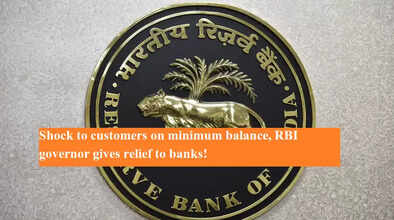Shock to customers on minimum balance, RBI governor gives relief to banks!

ICICI Bank Hikes Minimum Balance Requirement; RBI Governor Says Banks Have Free Hand
From August 1, 2025, ICICI Bank has significantly increased the Minimum Average Balance (MAB) requirement for new savings accounts, delivering a financial jolt to customers. Along with this change, the bank has introduced new cash deposit and withdrawal charges, potentially adding to the burden on account holders.
Speaking on the matter, Reserve Bank of India (RBI) Governor Sanjay Malhotra clarified that setting a minimum balance is entirely a bank’s decision and does not fall under the RBI’s direct regulatory scope. This means banks—whether public or private—can independently decide the MAB and related penalties.
Different Rules for Public and Private Banks
India’s banking sector follows varying minimum balance norms depending on the type of institution:
-
Public Sector Banks like State Bank of India (SBI) generally keep the MAB lower, often around ₹3,000 for urban branches and ₹1,000 for rural branches.
-
Private Sector Banks such as ICICI Bank and HDFC Bank tend to set higher thresholds, often ₹10,000 or more for urban branches.
Failing to maintain the required MAB can result in penalty charges ranging from ₹100 to ₹600, depending on the bank’s policy and the account type.
Impact on Customers’ Financial Planning
For customers, these changes could influence day-to-day money management and long-term financial planning. A higher MAB means more funds remain locked in the account, reducing flexibility for other expenses or investments. Additional transaction charges—such as those on cash deposits and withdrawals—may also make regular banking more costly.
Banking experts suggest that customers should:
-
Review their bank’s MAB policy before opening a new account.
-
Consider alternatives such as zero-balance or basic savings accounts, especially if maintaining a higher balance is difficult.
-
Track transactions carefully to avoid unnecessary penalties.
Why Banks Increase MAB
Banks often justify MAB hikes as a measure to ensure sufficient low-cost deposits, which help them manage liquidity and fund lending operations. Private banks, in particular, may view higher MAB requirements as part of their premium service structure, targeting customers who can maintain larger balances.
However, for many ordinary account holders—especially salaried professionals, small business owners, and rural customers—such increases can strain personal finances.
Final Takeaway
While ICICI Bank’s move has sparked debate, the RBI’s stance makes it clear that minimum balance rules are entirely at the discretion of banks. Customers will need to adapt to these changes by either adjusting their account usage, switching to banks with lower MAB, or choosing accounts with no minimum balance requirement.
With the gap between public and private bank policies widening, the choice of where to bank is becoming more important than ever for Indian consumers.

